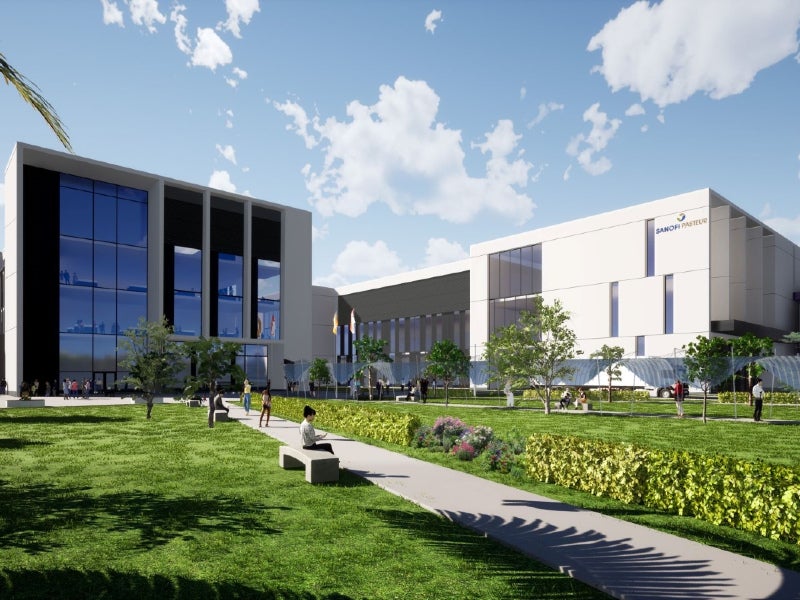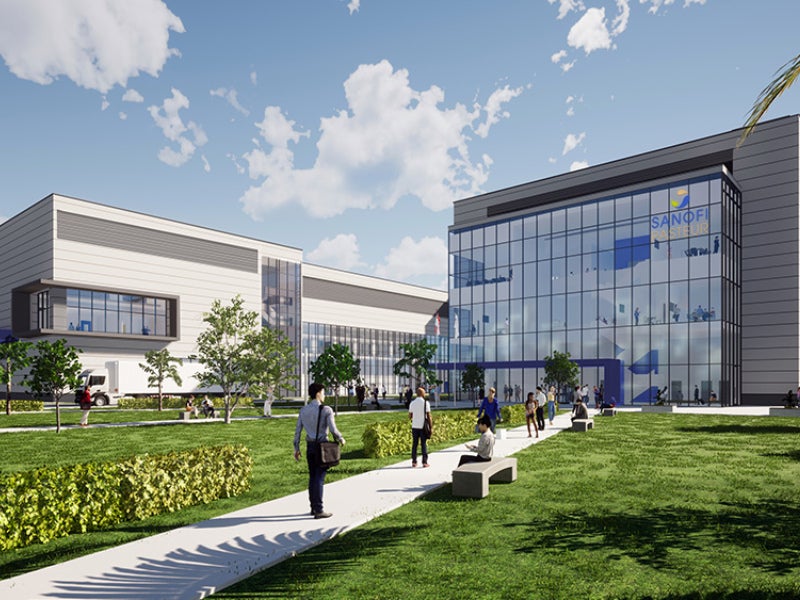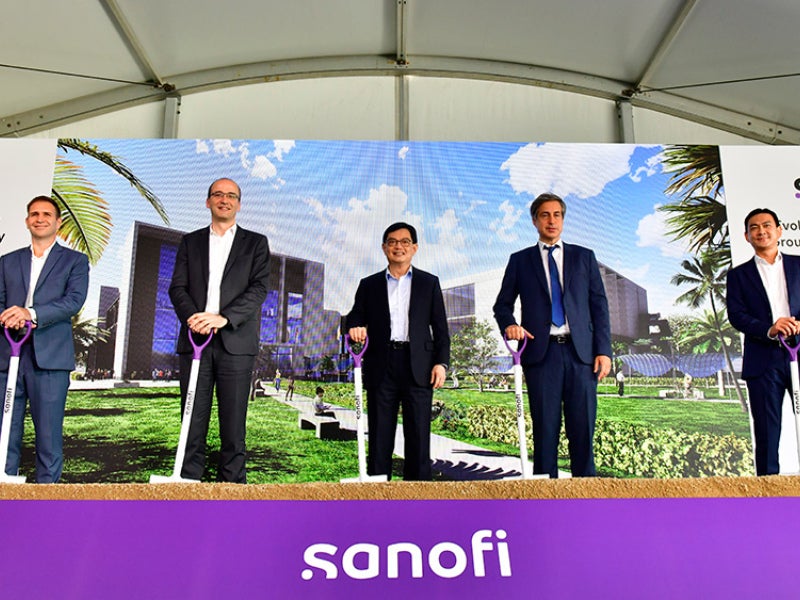French pharmaceutical company Sanofi will build a new state-of-the-art vaccine manufacturing facility, named Evolutive Vaccine Facility (EVF), in Singapore for the large-scale manufacturing of vaccines to enhance preparedness for future pandemics.
In collaboration with the Singapore Economic Development Board, the facility will primarily help with delivery to the Asian region. The company currently has manufacturing facilities in Europe and North America.
The ground-breaking ceremony for the new manufacturing facility in Singapore was held in April 2022. Operations are expected to begin by the end of 2025.
Sanofi will invest S$638m ($466.9m) in the project, which will create up to 200 local jobs once operational and establish Singapore as a regional innovation hub for the healthcare industry.
The project is a part of the company’s €900m ($970.8m) investment to develop two new EVFs globally over five years. The other facility will be located in Neuville-sur-Saône, France. Powered by big data and digital, the EVFs represent the future of vaccine manufacturing.
Location of Sanofi’s Evolutive Vaccine Facility
Sanofi’s Singapore EVF will be situated in Tuas Biomedical Park, a 280-hectare industrial park located in the west of Singapore. The industrial park currently houses 13 biopharmaceutical companies with a total workforce of 7,000 people.
Details of the Evolutive Vaccine Facility
The EVF will be a first-of-its-kind, state-of-the-art fully digitalised, modular vaccine manufacturing facility. It will be capable of producing vaccines on a large scale for Asia.
The facility will be designed to be carbon neutral and allow for future modifications.
Unlike a standard vaccine manufacturing facility, the EVF will support more responsive multiple vaccine manufacturing technology platforms, facilitating rapid and flexible manufacturing of different types of vaccines and biological products, such as messenger RNA (mRNA), enzymes and monoclonal antibodies.
The facility will have a central unit, which will include several digitised modules to manufacture up to four vaccines at a time. It will be able to switch between vaccine process configurations to quickly adapt to specific production requirements and changing public health emergencies, enabling quicker delivery and ensuring preparedness for future pandemics. It will require approximately 12 days to transition from the production of one vaccine to another.
The facility will be able to meet the demand for vaccines at both regional and global levels, ensuring access to advanced vaccines and treatments.
Sustainable features
Sanofi’s EVF will be installed with solar panels and purchase green electricity to power its operations. It will be more resource-efficient by consuming fewer resources and minimising waste production.
Technology details
The modular production lines at the facility will be developed, implemented, validated and operated using Dassault Systèmes’ “Made to Cure for BioPharma” industry solution based on the 3DEXPERIENCE platform.
The production lines will employ mobile equipment and single-use technology to produce up to four products simultaneously and in an eco-friendly manner by using modern technologies to lower energy usage.
The 3DEXPERIENCE platform allows Sanofi to create virtual twins enhancing the flexibility, dependability, and efficiency of its new facilities.
Vaccine development at Sanofi
Sanofi has deployed several tools and techniques to develop vaccines that target proteins, sugars or other features that allow pathogens to thrive in the human body.
The company is currently developing several vaccine types, such as live-attenuated vaccines, inactivated vaccines, recombinant protein vaccines, polysaccharide-based vaccines and mRNA vaccines.
It also develops monoclonal antibodies, which provide immediate protection against certain diseases.
Besides vaccines, Sanofi also works in therapeutic areas such as immunology and inflammation, oncology, neurology and rare blood disorders.
Contractors involved
In October 2022, Sanofi collaborated with software company Dassault Systemes to improve production at the EVFs in both France and Singapore.






